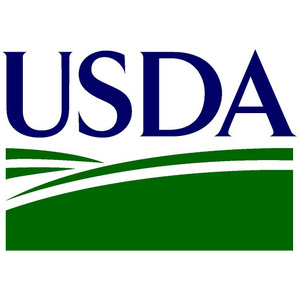USDA amends program offering $700M in COVID-19 aid for biofuels

January 27, 2022
BY Erin Krueger
The USDA Rural Business-Cooperative Service is amending its program offering $700 million in COVID-19 aid to biofuel producers by allowing production to meet marketing obligations or fulfill or maintain essential markets to be included in the calculations of a biofuel producer’s market losses as a result of COVID-19.
The agency is set to publish a notice of the amendment in the Federal Register on Jan. 28. A prepublication version of the notice is currently available.
The USDA on Dec. 13 published a notice in the Federal Register announcing the application window and application requirements for the $700 million in COVID-19 relief funds announced by the agency earlier in the month.
Advertisement
Advertisement
As originally announced, the Biofuel Producer Program will make payments to eligible producers of eligible biofuel for unexpected market losses as a result of COVID-19. The USDA said the payments to biofuel producers will support the maintenance and viability of a significant market for agricultural producers of products, such as corn, soybeans or biomass, that supply biofuel production.
Under the original program rules, the program would make payments to eligible producers based upon the volume of market loss the biofuel producer experienced in calendar year 2020, with a producer’s volume of market loss will be calculated by comparing the amount of fuel they produced in calendar year 2020 to the amount of fuel produced in 2019. Eligible gallons of biofuel produced by the eligible producer in 2020 to meet required contractual commitments resulting in a gross profit loss will be deducted from 2020 production by the agency’s calculation of program payments, the USDA said in the Dec. 13 notice.
The USDA is now amending those requirements. According to the agency’s new notice, the agency is amending sections A, D and E of the original notice of funding opportunity (NOFO) to specify that eligible biofuel produced by eligible producers in 2020 to meet required contractual commitments, marketing obligations, or fulfill or maintain essential markets, resulting in a gross profit loss will be deducted from 2020 production by the agency’s calculation of program payments. Gross profit loss related to required production can be based on either the entire 2020 year, or a period in 2020 specified by the applicant, according to the agency.
Advertisement
Advertisement
Payments made under the Biofuel Producer Program will be based on a fixed amount per gallon for all eligible producers. That fixed amount per gallon will be calculated by diving the amount of program funding available by the total volume of market loss reported by eligible program applicants.
Applications for the Biofuel Producer Program must be filed by Feb. 11, 2022.
Related Stories
The European Commission on July 18 announced its investigation into biodiesel imports from China is now complete and did not confirm the existence of fraud. The commission will take action, however, to address some systemic weaknesses it identified.
Kintetsu World Express Inc. has signed an additional agreement with Hong Kong, China-based Cathay Pacific Airways for the use of sustainable aviation fuel (SAF). The agreement expands a three-year partnership between the two companies.
On July 18, U.S. EPA announced a reduction in force (RIF) as the agency continues its comprehensive restructuring efforts. With organizational improvements, EPA is delivering $748.8 million in savings.
Broco Energy on July 17 announced a new partnership with the Massachusetts Port Authority (Massport) to deliver and transition Massport's fuel tanks to renewable diesel across its various facilities.
Shell Aviation, Accenture, and Amex GBT on July 10 announced Avelia is in the process of evolving to an industry solution with independent data hosting and a multi-supplier model helping users access the GHG benefits of SAF.
Upcoming Events










